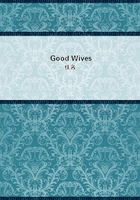
第12章
"What do you--that is, what compensation--" began Jo, not exactly knowing how to express herself.
"Oh, yes, well, we give from twenty-five to thirty for things of this sort. Pay when it comes out," returned Mr. Dashwood, as if that point had escaped him. Such trifles do escape the editorial mind, it is said.
"Very well, you can have it," said Jo, handing back the story with a satisfied air, for after the dollar-a-column work, even twenty-five seemed good pay.
"Shall I tell my friend you will take another if she has one better than this?" asked Jo, unconscious of her little slip of the tongue, and emboldened by her success.
"Well, we'll look at it. Can't promise to take it. Tell her to make it short and spicy, and never mind the moral. What name would your friend like to put on it?" in a careless tone.
"None at all, if you please, she doesn't wish her name to appear and has no nom de plume ," said Jo, blushing in spite of herself.
"Just as she likes, of course. The tale will be out next week. Will you call for the money, or shall I send it?" asked Mr. Dashwood, who felt a natural desire to know who his new contributor might be.
"I'll call. Good morning, Sir."
As she departed, Mr. Dashwood put up his feet, with the graceful remark, "Poor and proud, as usual, but she'll do."Following Mr. Dashwood's directions, and making Mrs. Northbury her model, Jo rashly took a plunge into the frothy sea of sensational literature, but thanks to the life preserver thrown her by a friend, she came up again not much the worse for her ducking.
Like most young scribblers, she went abroad for her characters and scenery, and banditti, counts, gypsies, nuns, and duchesses appeared upon her stage, and played their parts with as much accuracy and spirit as could be expected. Her readers were not particular about such trifles as grammar, punctuation, and probability, and Mr. Dashwood graciously permitted her to fill his columns at the lowest prices, not thinking it necessary to tell her that the real cause of his hospitality was the fact that one of his hacks, on being offered higher wages, had basely left him in the lurch.
She soon became interested in her work, for her emaciated purse grew stout, and the little hoard she was making to take Beth to the mountains next summer grew slowly but surely as the weeks passed. One thing disturbed her satisfaction, and that was that she did not tell them at home. She had a feeling that Father and Mother would not approve, and preferred to have her own way first, and beg pardon afterward. It was easy to keep her secret, for no name appeared with her stories. Mr. Dashwood had of course found it out very soon, but promised to be dumb, and for a wonder kept his word.
She thought it would do her no harm, for she sincerely meant to write nothing of which she would be ashamed, and quieted all pricks of conscience by anticipations of the happy minute when she should show her earnings and laugh over her well-kept secret.
But Mr. Dashwood rejected any but thrilling tales, and as thrills could not be produced except by harrowing up the souls of the readers, history and romance, land and sea, science and art, police records and lunatic asylums, had to be ransacked for the purpose. Jo soon found that her innocent experience had given her but few glimpses of the tragic world which underlies society, so regarding it in a business light, she set about supplying her deficiencies with characteristic energy. Eager to find material for stories, and bent on making them original in plot, if not masterly in execution, she searched newspapers for accidents, incidents, and crimes. She excited the suspicions of public librarians by asking for works on poisons. She studied faces in the street, and characters, good, bad, and indifferent, all about her. She delved in the dust of ancient times for facts or fictions so old that they were as good as new, and introduced herself to folly, sin, and misery, as well as her limited opportunities allowed. She thought she was prospering finely, but unconsciously she was beginning to desecrate some of the womanliest attributes of a woman's character. She was living in bad society, and imaginary though it was, its influence affected her, for she was feeding heart and fancy on dangerous and unsubstantial food, and was fast brushing the innocent bloom from her nature by a premature acquaintance with the darker side of life, which comes soon enough to all of us.
She was beginning to feel rather than see this, for much describing of other people's passions and feelings set her to studying and speculating about her own. a morbid amusement in which healthy young minds do not voluntarily indulge. Wrongdoing always brings its own punishment, and when Jo most needed hers, she got it.
I don't know whether the study of Shakespeare helped her to read character, or the natural instinct of a woman for what was honest, brave, and strong, but while endowing her imaginary heroes with every perfection under the sun, Jo was discovering a live hero, who interested her in spite of many human imperfections. Mr. Bhaer, in one of their conversations, had advised her to study simple, true, and lovely characters, wherever she found them, as good training for a writer. Jo took him at his word, for she coolly turned round and studied him--a proceeding which would have much surprised him, had he know it, for the worthy Professor was very humble in his own conceit.